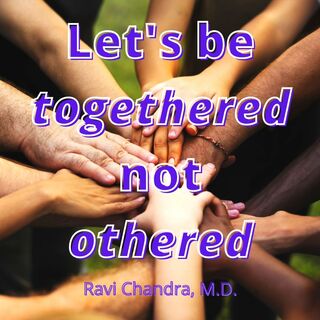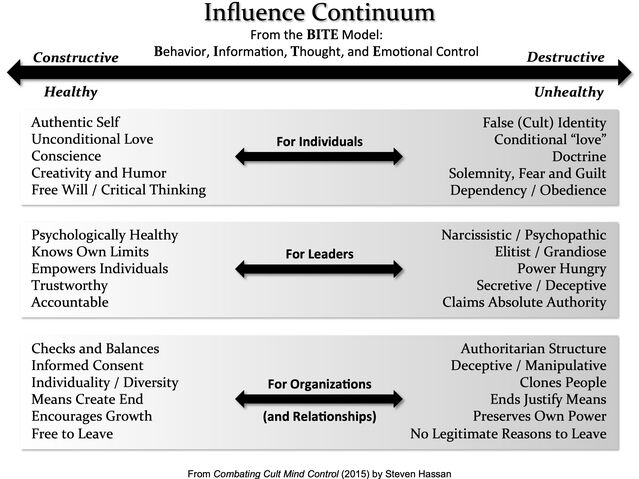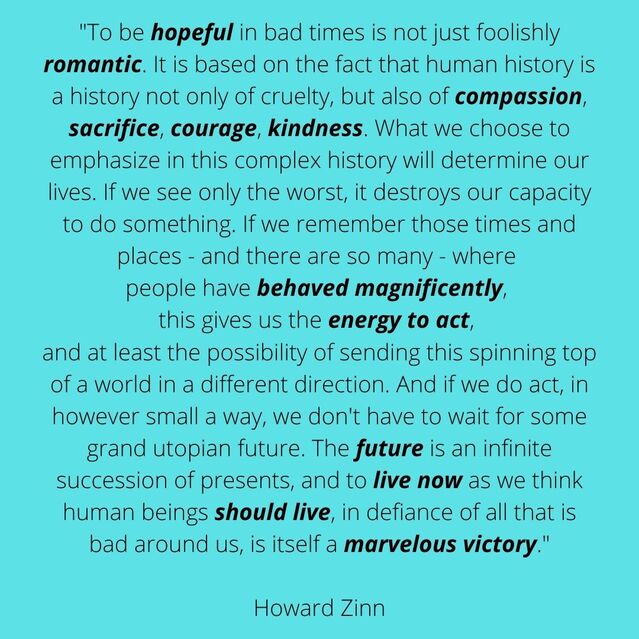Authenticity
Authenticity, Compassion and Overcoming Propaganda
Politics and Rhetoric Can Bias Us Against Equality
Posted October 26, 2020 Reviewed by Lybi Ma

The U.S. seems to be a very polarized nation in the run-up to the election next week, with heated all-or-nothing, and even dehumanizing, rhetoric from political leaders and their most extreme followers. But as I said in an article last year (Narcissism, Needs for Certainty and Closure, and Relatedness, July 30, 2019)
The good news: the electorate as a whole does not seem to be as polarized as we are led to believe by the media. A recent study by the Hidden Tribes project (Yudkin D, Hawkins S, Dixon T. The Perception Gap: How False Impressions Are Pulling Americans Apart (2019), available online) details that both Republicans and Democrats imagine that almost twice as many people on the other side hold extreme views than really do. (You can also listen to this 23-minute long podcast on the subject from KQED: False Perceptions Further Divide Among Americans, New Study Finds, 7/8/19.)
Socrates warned 2500 years ago that rhetoric could destroy a democracy. While rhetoric (the use of pathos, logos, and ethos, or emotion, logic, and ethics) could be used justly, it could also be used to flatter and mislead the audience. Modern propaganda analysts recognize that rhetoric can be used to distort reason and dehumanize the "opposition". Disinformation campaigns have been used to undermine democratic processes such as free and fair elections through media, social media and political campaigns. (See Psychological Violence and Propaganda, from the White House, Oct. 23, 2018.)
When a candidate tars his or her opponent as evil, or "an enemy of all that is good," this should be a red flag. For example, President Trump has said "Joe Biden hates God," and that "Democrats hate America." I've seen his supporters online say that Democrats are secretly "communist" or "atheist." One voter in South Carolina on the PBS NewsHour on October 26. 2020 called Democrats "Demon Rats." David Livingstone Smith argues in Less Than Human that dehumanization opens the door to cruelty. (See 'Less Than Human': The Psychology Of Cruelty, NPR, March 29, 2011.) The rhetoric opens the door to the loss of human dignity and all manners of cruelty and violence in East Wind eZine, where I'm writing a blog series at my corner of the intersection of Black and Asian Lives.
Dehumanization, subordination and subjugation are self-centered, tribalistic power plays and amplify the Split Self.
The Split Self
The split is created between a conformity to toxic elements of culture and the true or authentic self, which I define as based on our nature as compassionate, nurturing, caring beings, the qualities that have sustained us as a species and guided our evolution. Our deepest human values connect us to this true self. Our human values help heal the split that arises in individuals living in a divided society that discriminates based on identity and thus distorts our equality as human beings.
The split is between social programming and mind control and this awakened, authentic true nature.
For example, toxic individuals, cults and certain religious organizations demand conformity. They control:
- Behavior
- Information
- Thoughts
- Emotions
If you don’t follow the rules, if you don't swallow the belief system the group or leader mandates, you get labeled ‘bad’ or are ostracized, punished, scapegoated, blamed. The underlying view is that the self, or human nature itself, is bad and must be persecuted or controlled to become good, or that some people are bad and must be discriminated against. (See my review of The Cult of Trump by Steven Hassan, published December 23, 2019.)

Examples of mind control, cults and splitting in the culture at large
There are many examples, from abusive and restrictive parents to religious or political organizations, to cable news, to cultural movements (groupthink) and social media reinforcement, to racism/sexism/homophobia/ableism etc. in general. They all define who is unacceptable. In the current majoritarian environment, White Male Christians are seen as the "norm" and everyone else becomes essentially a threat to them.
I saw an evangelical PAC commercial on CBS Sunday Morning a few weeks ago in which a pastor stated that non-Christian ideologies were aimed at the destruction of the country. This is frightening and reality-distorting rhetoric, even hate speech, that could provoke violence by fanning the flames of dehumanization and scapegoating.
These are self-centered and thus delusional beliefs, and examples of gaslighting and mind control.
A threatened majority culture requires submission to these controls and dogmas in critical ways to gain safety and feel powerful. But it's a fleeting safety and power. Underneath, there's tremendous insecurity and uncertainty about demographic, economic, technological and climate change. We all have uncertainty and vulnerability. Connecting this to the true, related, interdependent self generates compassion and stability, and promotes life. Becoming mired in self-centeredness, fear and hatred brings grave suffering to the minds of individuals and society-at-large.
After the election, political leaders will need to provide a lot of grounding to break through these delusions and bring people back to the reality of relationship, and what is required for good relationship and responsible discussion of differences.
I hope we can join in wishes and vows to support non-violence, peace, and the process of re-humanization that must come after the surfacing of such horrible divisions. But maybe we had to see all this in order to know what needs to change within ourselves and in the country.
What we name, we can tame. What we can feel, we can heal. We are feeling suffering. distress, and anguish, as a nation wounded by history and by power used to harm and exclude and subjugate.
Let's vow to do better, and come together as much as we can. The future, our children and grandchildren, depend on us.
(c) 2020 Ravi Chandra, M.D., D.F.A.P.A.





